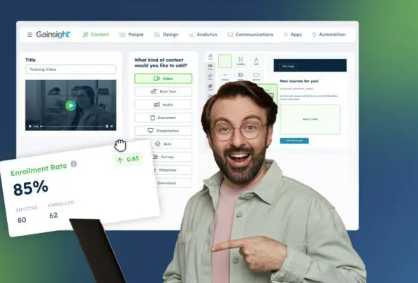In the digital age, effective studying is not just about accessing the right content—it’s also about understanding how well you’re learning. Study platforms that offer built-in analytics can help students track progress, identify strengths and weaknesses, and make informed decisions about where to focus their efforts. These tools often include data on time spent, accuracy, quiz performance, and content mastery, all of which contribute to a smarter, more personalized study experience. Here are some of the best free or freemium study resources that offer built-in analytics:
- Khan Academy – Offers free lessons across a wide range of subjects and includes detailed analytics. Students can track their progress on skill mastery, quiz scores, and time spent on each topic. Teachers and parents can also view learner dashboards.
- Quizlet – While primarily a flashcard tool, Quizlet’s Learn mode uses adaptive technology and tracks right/wrong answers over time. Users get a visual breakdown of their weakest terms and can view completion progress for each study set.
- Edmodo – Designed for classroom use, Edmodo allows teachers to assign tasks and quizzes and then provides analytics on student responses, submission times, and overall class performance.
- Google Classroom with Forms – When combined with Google Forms quizzes, Classroom offers basic analytics on student performance, average scores, and individual results. Teachers can use these insights to adjust instruction.
- Duolingo – Tracks user progress in language learning through experience points, strength bars, skill trees, and streaks. It gives learners feedback on daily activity and lets them review specific skills that need reinforcement.
- Brainscape – Confidence-based repetition helps tailor review sessions based on how confident users feel about each flashcard. The app tracks card accuracy and highlights trouble areas, showing which subjects need more review.
- Magoosh (Free Resources) – Magoosh’s free GRE, SAT, and ACT tools include practice questions and analytics dashboards that show topic performance, time spent per question, and accuracy rates.
- Study.com (Free Trial and Basic Access) – Offers video-based courses with quizzes, progress tracking, and goal dashboards. Learners can monitor which topics they’ve mastered and which need more review.
- IXL (Free Practice Limited) – Offers personalized learning paths with real-time analytics for math, language arts, science, and more. It tracks accuracy, improvement over time, and provides recommendations.
- Lumosity (Free Tier) – While geared toward brain training, Lumosity offers progress metrics, performance trends, and feedback on cognitive areas such as memory, flexibility, and attention.
- Albert.io (Free Access Samples) – Provides in-depth insights on topic mastery and time usage, especially for AP and standardized test prep. Teachers can use the platform to guide instruction based on class analytics.
- CK-12 Foundation – Offers free textbooks and interactive tools along with data tracking for students. Their adaptive practice features monitor correctness and pacing to tailor question difficulty.
- Socrative (Free Teacher Plan) – Allows teachers to create quizzes and polls and get instant data on student understanding. Useful for live assessments or pre/post-tests.
- Microsoft Learn (Free) – Includes analytics dashboards for technical learning. Users can track progress across modules, certification readiness, and areas of low engagement.
- Coursera (Audit Mode) – For those auditing free courses, Coursera provides completion percentages and graded assignment feedback, helping learners track their study timelines and mastery of topics.
In summary, using study platforms with built-in analytics helps students become more strategic and self-aware. By reviewing performance data, learners can refine their study habits, prioritize challenging topics, and celebrate measurable progress. Whether you’re preparing for a test, developing new skills, or exploring a subject independently, analytics-backed resources give you the insight needed to study smarter—not harder.














